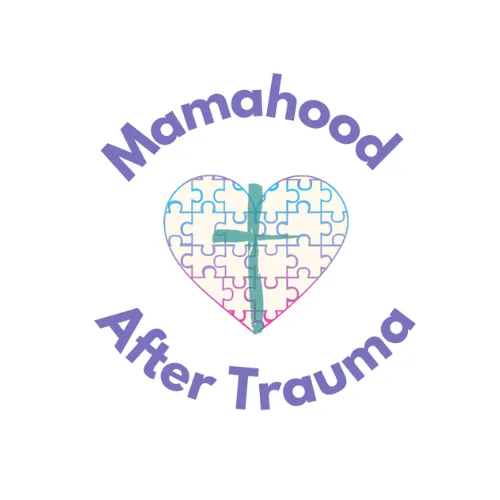
Discover a sanctuary for healing and growth in motherhood with the Mamahood After Trauma Podcast hosted by Emily Cleghorn. Dive into candid discussions and practical tips on parenting amidst trauma recovery.
Join Emily and her guests as they navigate the complexities of raising children while prioritizing personal healing. Find solace, strength, and joy in the beautiful chaos of mamahood after trauma.
Listen now!
Featured Posts

The Trauma-Informed Mother's Toolkit: Nurturing Yourself and Your Children
Motherhood can be a beautiful journey, but for those of us who have experienced trauma, it can also be incredibly challenging. As we navigate the ups and downs of raising our little ones, we often find ourselves face-to-face with our own unresolved issues. It's like peeling back layers of an onion, revealing emotions and triggers we thought we had long since buried.
I recently had the pleasure of speaking with Cassandra Love Lambert, a trauma-trained somatic transformational coach and artist. Her insights into setting healthy boundaries as a trauma-informed mother were truly eye-opening. Today, I want to share some of her wisdom with you, along with practical strategies to help you nurture yourself and your children with kindness and understanding.

Embracing Your Healing Journey
One of the most powerful things Cassandra shared was her own experience of becoming a mother. She described it as a "trauma capsule" opening wide, bringing to the surface all the unresolved issues from her past. This resonated deeply with me, and I'm sure many of you can relate.
It's important to remember that healing isn't a destination - it's a journey. As Cassandra put it, "It's not about hitting a target. It's just about creating a healthy lifestyle, a healing lifestyle that supports you day to day so you can be your best self."
The Power of Daily Practice
Cassandra emphasized the importance of incorporating healing practices into our daily routines. She suggested a few key elements:
Meditation: Find a style that works for you, whether it's silent reflection, guided visualizations, or movement-based practices.
EFT Tapping: This powerful technique can help calm your nervous system and reduce stress.
Movement: Engage in some form of physical activity that feels good for your body.
Spiritual nourishment: Connect with something that feeds your soul, whether it's reading inspirational texts, creating art, or spending time in nature.
Setting Healthy Boundaries
As trauma survivors, many of us struggle with setting and maintaining boundaries. Cassandra reminded us of some fundamental rights we all have:
The right to say no without feeling guilty
The right to be treated with respect
The right to make our needs just as important as everyone else's
The right to be accepting of our own mistakes and failures
The right not to meet others' unreasonable expectations of us
Remember, you're allowed to have any boundary you need to feel safe. If someone makes you feel guilty for setting a boundary, it might be a sign that they're not a good match for your healing journey.
Recognizing the Need for Boundaries
Cassandra shared a valuable tip: pay attention to feelings of anger or irritation. These emotions often signal that a boundary needs to be set. Ask yourself:
Is there something here I could say no to?
Am I saying yes to someone else but no to myself?
Do I need to renegotiate a commitment I've made?
Tools for Managing Triggers and Overwhelm
Motherhood can be overwhelming, especially when we're dealing with our own trauma. Cassandra shared some practical tools to help us navigate those challenging moments:
Seven's Breathing: This technique, also known as box breathing, can help calm your nervous system. Breathe in for seven counts, hold for seven, exhale for seven, and hold for seven. Repeat seven times.
Ho'oponopono: This Hawaiian practice involves repeating four phrases: "I love you, I'm sorry, please forgive me, thank you." It can help shift the energy in difficult situations.
Tap and Rant: Give yourself permission to express your anger safely by tapping on EFT points while stomping your feet and verbalizing your frustrations.
Tap and Talk: When having difficult conversations, try tapping on EFT points to help stay calm and centered.
As we navigate the beautiful and challenging journey of motherhood after trauma, it's crucial to remember that we're not alone. By incorporating these practices and tools into our daily lives, we can create a more nurturing environment for ourselves and our children.
Remember, healing is a process, and it's okay to take it one day at a time. Be gentle with yourself, celebrate your progress, and know that by doing this work, you're not only healing yourself but also paving the way for your children's freedom and well-being.
Don't miss an episode again!
Subscribe to get updates sent to your inbox!
© Copyright Emily Cleghorn 2024


